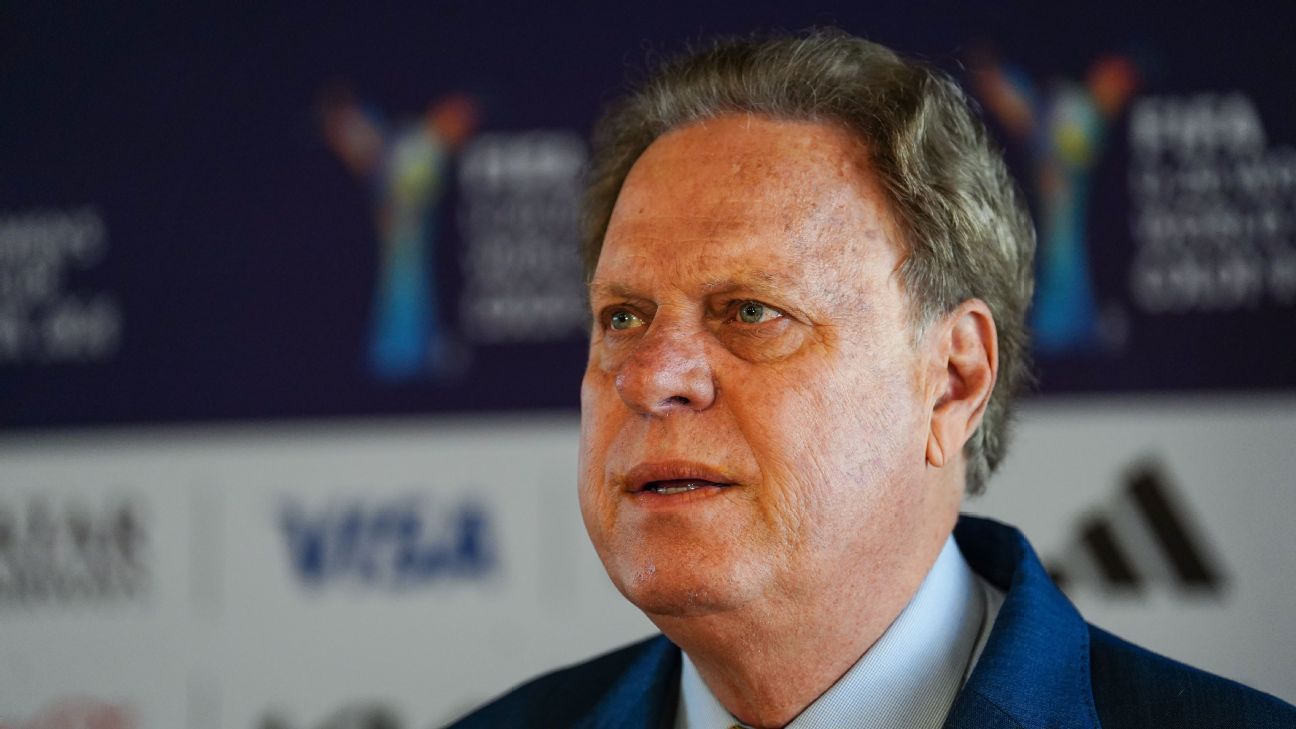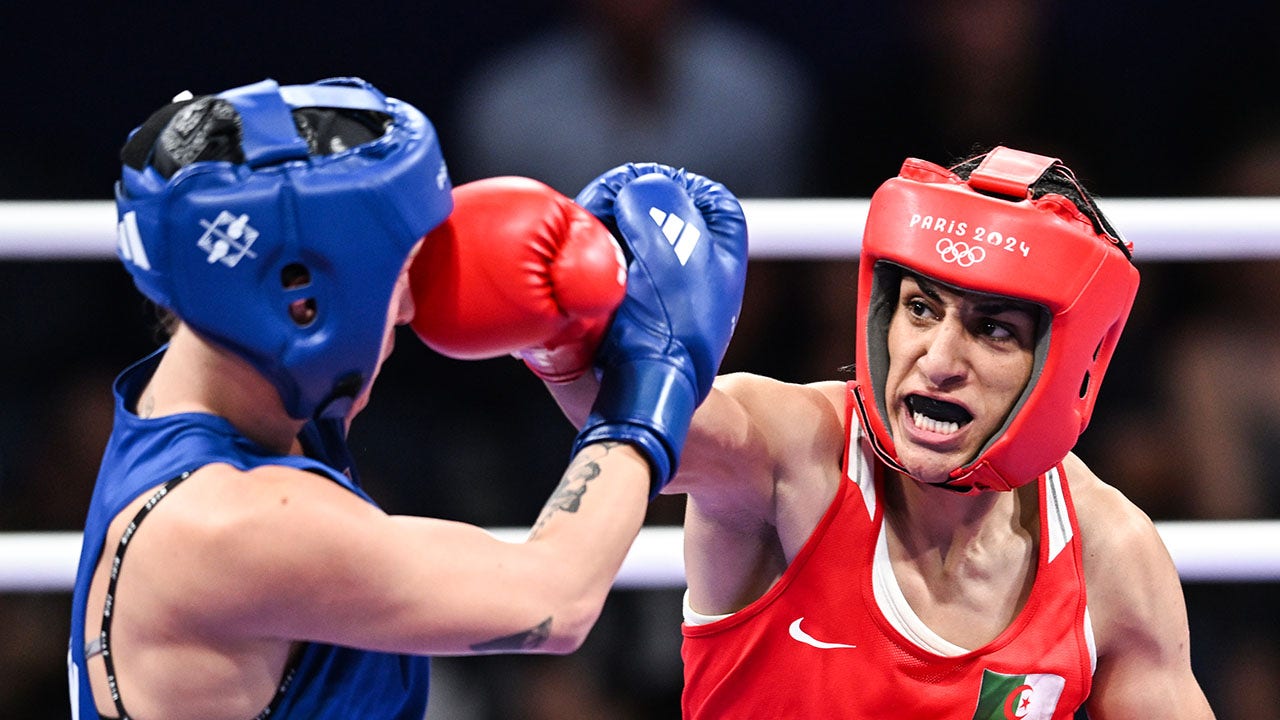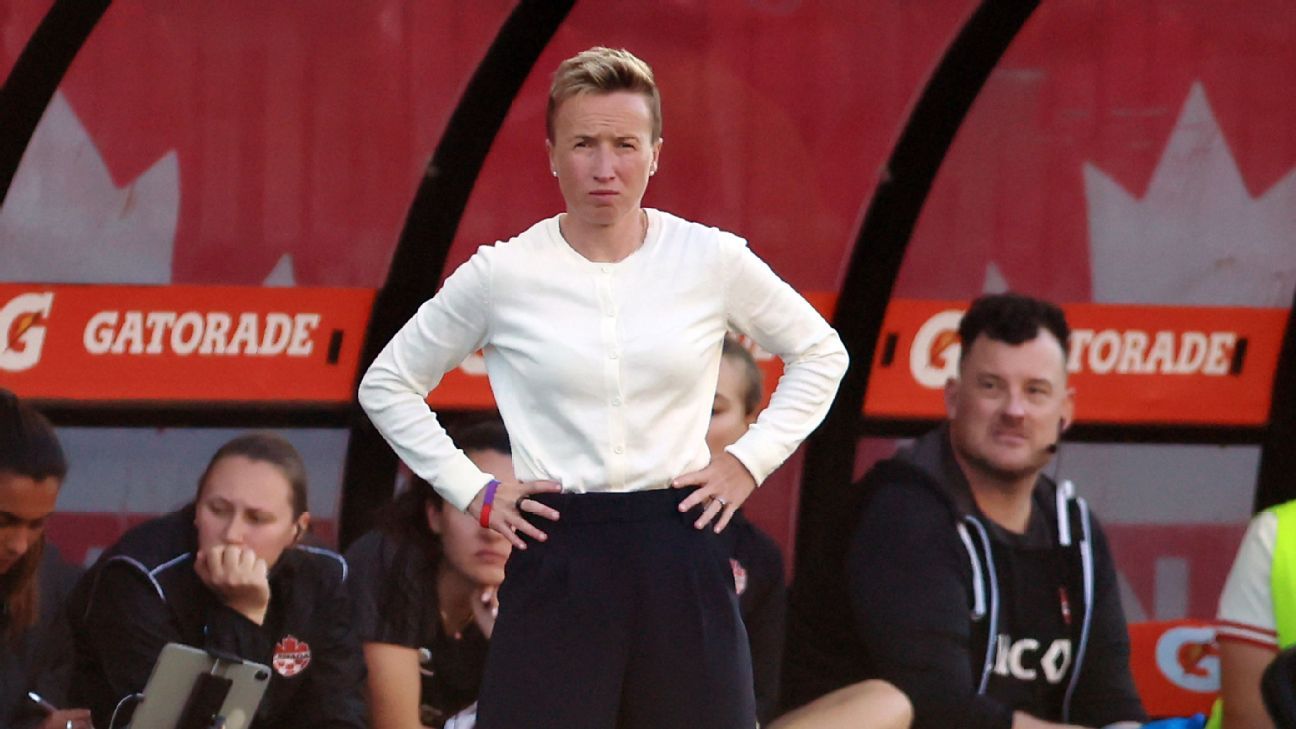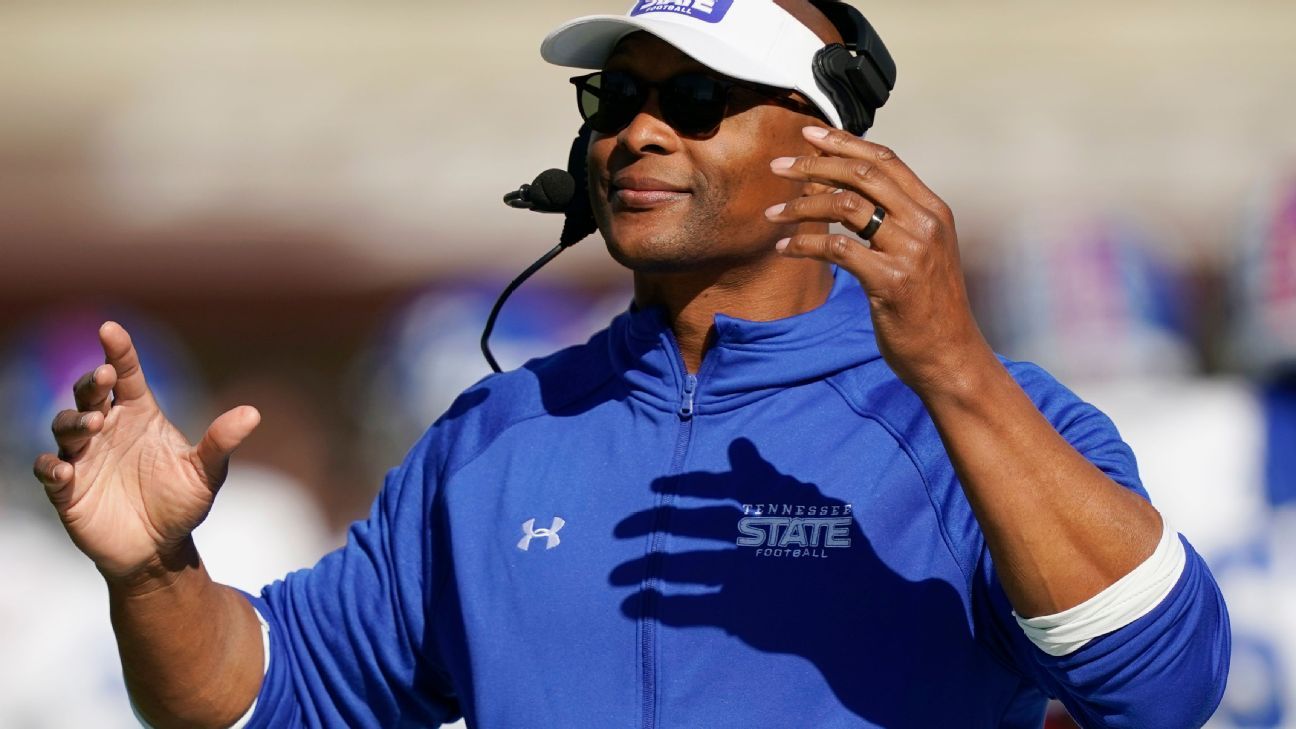Colombian Football Federation President Ramón Jesurún and his son, Ramón Jamil Jesurún, face three felony charges of assault on a specific official or employee after being arrested by Miami-Dade police at Hard Rock Stadium following the 2024 Copa América final.
The two men were booked into the Turner Guilford Knight Correctional Center shortly after 4:10 a.m. Monday, according to jail records. The father, 71, and son, 43, are accused of fighting with several security guards in one of the stadium’s tunnels used for media around 12:20 a.m. ET as they tried to gain access to the field, according to the arrest report.
Colombia lost the final 1-0 to Argentina after extra time in a match marred by chaos among the crowd in the moments leading up to the match, forcing a delay in kick-off. Miami-Dade police said Monday that there were 27 arrests and 55 ejections on Sunday after people without tickets forced their way into Hard Rock Stadium.
The Miami-Dade Fire Department also told ESPN it responded to a total of 120 incidents at the stadium on Sunday, 116 of which were related to medical issues.
The police report goes on to say that the altercation with the Jesuruns turned physical when the security officer asked the men to back off by placing his palm on Ramon Jamil to “guide him back.” According to the officer, the duo quickly “became angry” with a guard and began “yelling” at him.
Jesurun's bail is set at $2,000 and his son's is $1,000. Both appeared before a Miami-Dade judge on Monday afternoon dressed in orange jumpsuits and handcuffs.
In addition to being president of the Colombian Football Federation, Jesurún, 71, is also a member of the FIFA Council, the “strategic and supervisory body” of world football's governing body.
It was a chaotic scene just hours before the scheduled 8 p.m. kickoff of the championship match between the two South American countries: Fans forced their way inside, jumped security railings and ran past police officers and stadium attendants, and some fans appeared hysterical as they searched for the people they arrived with.
“Last night our public safety teams responded quickly to manage an extremely challenging and dangerous situation that posed safety risks to those in attendance,” Miami-Dade County Public Safety Chief James Reyes said in a statement.
“We are working with the event organisers to conduct a thorough review of all safety protocols as we continue to prepare for the World Cup in 2026.”
The venue was apparently significantly damaged. Videos and images posted on social media showed the shattered side railings of an escalator inside the stadium, with shoes, soda cans, reading glasses and clothing strewn about. Security railings at a checkpoint at the stadium’s southwest entrance were bent as thousands of people, including crying children, pushed against them.
The department said more than 800 law enforcement officers were at the event.
Later on Monday, CONMEBOL issued a statement distancing itself from the chaos leading up to the final, pointing the finger at “authorities at Hard Rock Stadium,” who it said did not follow the advice of soccer's governing body in preparing for an event of this magnitude.
“Yesterday, the most challenging tournament in history organized by CONMEBOL together with Concacaf concluded, reaching record numbers in venues, attendance, public and personnel dedicated to its organization, with more than 42 thousand collaborators,” reads the statement.
“As is known, during the final in Miami, fans without tickets went to the vicinity of the stadium, which delayed the normal access of people who did have tickets, slowing down entry and causing the doors to be closed.
“In this situation, CONMEBOL is subject to the decisions made by the authorities of Hard Rock Stadium, in accordance with the contractual responsibilities established for security operations.
“We regret that acts of violence provoked by malicious individuals have marred a final that was destined to be a great sporting event.”
Hard Rock Stadium did not immediately respond to a request for comment on its security plans, but said in an earlier statement that it had “more than double” the staff on Sunday than it would for a typical capacity event. The stadium has a capacity of more than 65,000.
“We understand that there are disappointed ticket holders who were unable to enter the stadium after the perimeter was closed, and we will work in partnership with CONMEBOL to address those individual concerns,” he said.
“Ultimately, there is nothing more important than the health and safety of all guests and staff.”
ESPN writer Jeff Carlisle contributed to this story. Information from The Associated Press and Reuters was also used.












